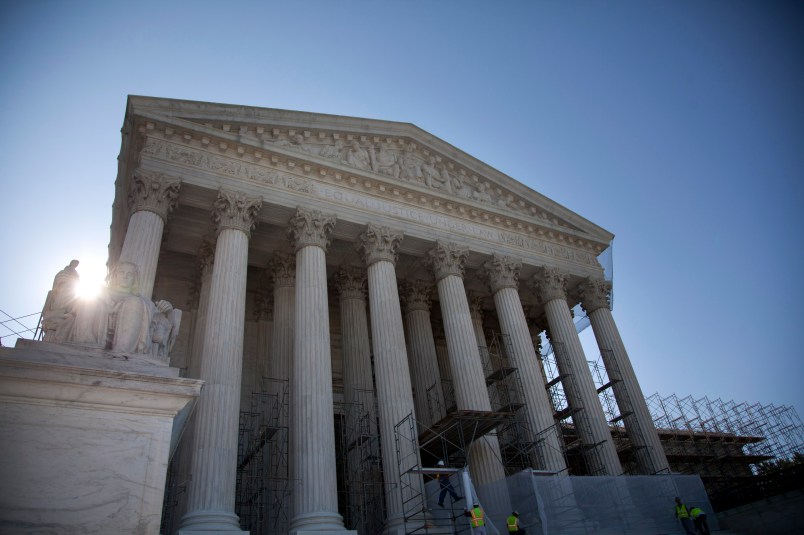The Supreme Court affirmed Monday that organizations engaged in certain political communications before an election, even advertisements that do not directly endorse a candidate for office, must disclose their donors to the Federal Election Commission.
A lower court’s judgment in Independence Institute v. Federal Election Commission was affirmed by the Supreme Court Monday. The ruling affirmed the constitutionality of disclosure requirements in the McCain-Feingold Act, which specify that any groups that spend more than $10,000 on “electioneering communications” in the 60 days before a general election (or 30 days before a primary election) must disclose their donors.
“Electioneering communications,” include radio and television ads that mention the name of a candidate for federal office, even those that do not make any explicit endorsement.
In this case, Independence Institute wanted to run a radio ad in 2014 urging listeners in its home state of Colorado to “call Senators Michael Bennet and Mark” and ask them support a bill allowing federal judges more discretion in the sentencing of non-violent offenders.
“Supporters of government transparency applaud the Supreme Court’s decision today to affirm the constitutionality of these key disclosure requirements,” said Tara Malloy, deputy executive director at the Campaign Legal Center, in a statement posted to the group’s website. “The public has a right to know who is spending large sums of money to influence their vote and to shape the laws and regulations that impact everyone.”
The disclosure requirement has been challenged before, including in the now-infamous Citizens United V. FEC decision. Though the court removed restrictions on corporate campaign spending in that case, eight justices maintained the McCain-Feingold disclosure requirements.







Seems kinda like a slippery slope…
Also, forcing people to reveal donors – what do you do then when the ad is funded by ‘The Big Committee To Make Everything Better’, ‘Americans for Good Stuff’, and ‘The League of People Who Like Things’?
My point being that those who desire anonymity will just create a layer of bland-sounding nothingburgers between themselves and their intended money targets.
Meh. This is the kind of shit that makes me feel like we’re so programmed to accept bullshit that we mindlessly cheer when we’re handed somewhat less of it. Yay…they upheld the disclosure requirement for SOME ads.
It should be ALL ads…without exception…and McCain-Feingold is flawed for that reason.
That kind of stuff can (eventually) be unwound. Baby steps. And let’s remember that it’s only candidates who are barred from taking money from non-citizens and coporations.